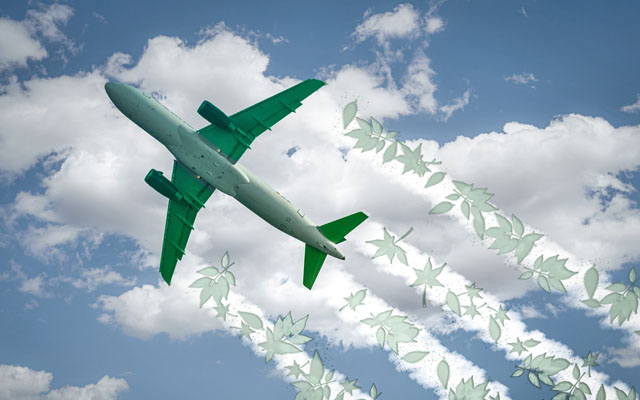The International Air Transport Association (IATA) has forecast that sustainable aviation fuel (SAF) production will reach two million tonnes (2.5 billion litres), accounting for 0.7 per cent of airlines’ total fuel consumption in 2025.
IATA director general Willie Walsh noted that while the expected doubling of SAF production to two million tonnes is encouraging, it still represents a small fraction of aviation’s fuel needs. He added that the increase would add US$4.4 billion globally to the fuel costs, and stressed the need to accelerate production and improve efficiencies to reduce expenses.

Most SAF currently supplies Europe, where EU and UK mandates came into effect on January 1, 2025. Walsh highlighted concerns about the doubling of SAF costs to airlines in Europe due to compliance fees imposed by producers or suppliers. For the estimated one million tonnes of SAF to meet European mandates in 2025, the cost at market prices is projected at US$1.2 billion, with additional compliance fees adding US$1.7 billion. Walsh pointed out that this extra cost could have been used to reduce a further 3.5 million tonnes of carbon emissions. Instead, Europe’s SAF mandates have made SAF five times more expensive than conventional jet fuel.
He questioned the implementation of mandates ahead of adequate market conditions and safeguards, noting that increasing the cost of decarbonisation – already estimated at US$4.7 trillion – could hinder progress. Walsh suggested that Europe may need to reassess its current approach.
To support a global SAF market, IATA has developed two initiatives. The first is a SAF registry, managed by the Civil Aviation Decarbonization Organization (CADO), which provides a transparent, standardised system for tracking SAF purchases, usage, and emissions reductions in line with international regulations such as the Carbon Offsetting Scheme for International Aviation (CORSIA) and the EU Emissions Trading Scheme. The second initiative, the SAF Matchmaker, aims to facilitate SAF procurement by connecting airline requests with supply offers.
IATA has called on governments to take urgent action in three key areas. First, governments should create more effective policies by removing the disadvantages renewable energy producers face compared to fossil fuel industries, including reallocating some of the US$1 trillion global subsidies currently directed at fossil fuels. Second, a comprehensive energy policy is required, one that increases renewable energy production and ensures an appropriate allocation for SAF. This should include support for shared infrastructure and co-production to benefit aviation and other sectors. Third, governments should ensure the success of CORSIA by making Eligible Emissions Units (EEUs) available to airlines; to date, only Guyana has made its carbon credits accessible for this purpose.
India, the world’s third-largest oil consumer after the US and China, has launched the Global Biofuels Alliance to promote biofuels as a key component of its energy transition and economic growth. This includes a target of two per cent SAF blending in international flights by 2028, supported by policies such as guaranteed pricing, capital support for new projects, and technical standards. IATA is collaborating with the Indian Sugar & Bio-Energy Manufacturers Association and Praj Industries to provide guidance on global best practices for life cycle assessment of feedstocks in India.
As the third-largest civil aviation market globally, India is positioned to strengthen its leadership in biofuels by accelerating SAF adoption through progressive policies.











